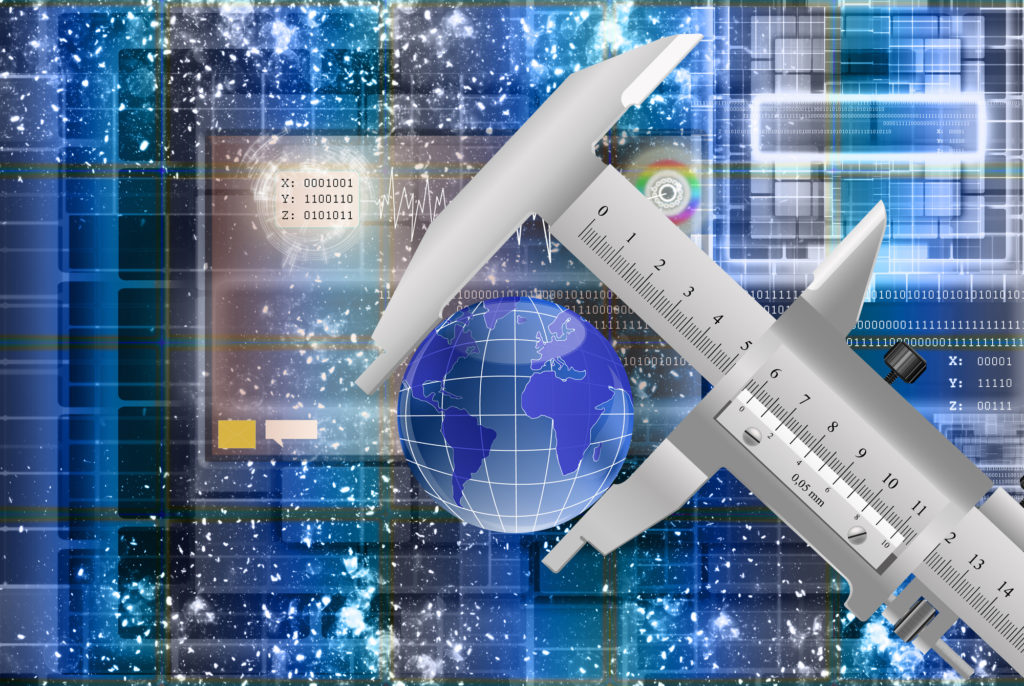Metrology can be defined as the science of measurement. It provides a common understanding of units that are vital in linking human activities. Modern metrology can be traced back to the French Revolution when the political class was inspired to standardize units in France. The whole inspiration came about when length standards acquired from natural resources were proposed.
Metrology can be categorized into scientific metrology, applied metrology, and legal metrology. Scientific metrology is the foundation of the other two fields. It involved the creation of new methods of measurements, the actualization of measurement standards and the movement of these standards to consumers or users.
On the other hand, legal metrology refers to the end of the line with regard to measuring instruments as well as regulatory requirements meant to protect consumers and promote fair trade.
Lastly, applied metrology is where measurement science is designed towards manufacturing plus other processes. It is basically meant to ensure the suitability of measurement instruments, their quality control, and calibration.
Metrology and its relevance in the manufacturing industry
Metrology is the technology responsible for quality assurance processes in the manufacturing industry. It is the technology that ensures vehicles operate the way they should, computer processors work properly and many other things that we often take for granted.
In manufacturing plants or factories, hundreds if not thousands of parts are produced daily. Most of the machines produced are manually programmed by people working in those manufacturing companies. Modern manufacturing demands that each part produced to meet precise specifications. That’s where metrology comes in.
A metrologist or quality control inspector with metrology experience is able to take parts that have been produced and verify if they meet the required specification standards or not. In case he or she finds the measurements are off, he can adjust to bring the part into the right spec.
Advancement in metrology
There’s no doubt that quality demands have continued to rise. However, the greatest challenge is that the natural human eye is prone to mistakes since it is incapable of measuring with precision – something that is needed to produce high-quality parts required.
In sectors where precision is crucial, such as aerospace and automotive, the importance of metrology cannot be overemphasized. That’s probably why metrology technology such as coordinated Measuring Machines are being used to keep measurements within the range of a millionth of an inch.
Why is metrology important?
One of the most important reasons why metrology is used in the automotive manufacturing industry is to increase the lifespan of vehicles. At some point, having a car that lasted for 100,000 miles was a great achievement.
Today it’s normal for cars to last 200,000 miles and more courtesy of metrology – hence reducing the cases of human error-related accidents.
The other important reason why most manufacturing companies are adopting metrology is its ability to reduce dependence on manpower for inspection work. It also helps in minimizing cases of operator error. Most companies have been able to double their manufacturing capacity as well as improve quality by the use of metrology.
Last but not least, metrology ensures that products such as cars and airplanes meet the designed tolerance limit. Besides, it also allows the control of limit settings that are important in making the necessary adjustment to the process.
Metrology also provides an opportunity for the operator to oversee the manufacturing process in real-time.
In general, metrology is the science of measurements that plays a very important role in the manufacturing industry. We have seen that before the introduction of metrology it was almost impossible to own a car that could last more than 100,000 miles. However, the introduction of metrology has seen significant progress within the manufacturing sector. It has enabled many manufacturing firms to improve both the quality and quantity of their products. Besides, metrology has also increased the level of safety for cars and other automotive products.




